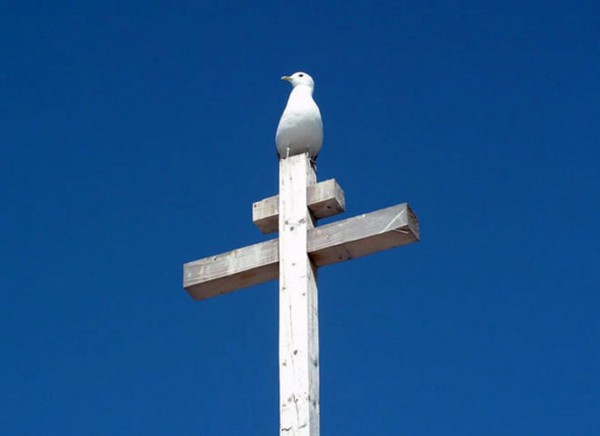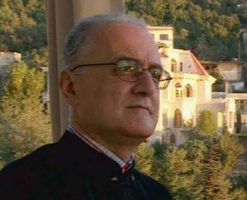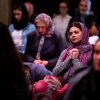“That which is not eternal is already out of date” – G.K. Chesterton
More than anything else, Orthodox Christianity is an inheritance: the task of responsibly receiving that which has been passed on to us about Jesus Christ and His Church, becoming it, and caring for that inheritance with the requisite stewardship to pass it on yet again, for others who seek it. It is, as St. Vincent of Lerins tells us, that which has been practiced and believed, everywhere, always, and by all. This is Orthodox tradition – the Orthodox way of being.
The Error of Simplification
But is an inheritance enough? One of the most common errors among keen Orthodox believers in our time is the careful keeping of all the Orthodox “rules” – rules of fasting, prayer and liturgical life, and the spiritual path of the Orthodox faith. Critics have labeled such people “zealots”, and indeed, each of us should be a zealot for Christ and His Church. Each of us should keep the fasts, observe a full prayer and liturgical life, and walk with utter seriousness the path of the Orthodox spiritual life. Yet to follow the Orthodox life as if it were a straight jacket is to do a blasphemy to Christ’s Church, and to the way it renews us and our life. This is the error of simplification: an attempt to distill the teaching of the holy apostles and fathers into an easily understood and followed set of practices.
The Error of Obfuscation
The spirit of our postmodern age presents us with a serious challenge, particularly when that spirit masquerades as Orthodoxy. Many Orthodox people, particularly when tempted by the mystique of secular academia, find themselves confronted with a choice between two worlds: one which reverences Holy Tradition, and one which dissects it and reassembles it in new and spiritually disfiguring ways. Even the heart of the measure of Orthodox tradition becomes perverted: any tradition which reflects the consensus of belief and practices of faithful Orthodox across the centuries, but which does not concur with the spirit of the times, becomes fair game. The tradition we inherit is quickly cast as a passing fad of one period in history, and no longer the consensus of the Church throughout the centuries. For example, the Divine Liturgy, which has changed on two major occasions in two thousand years, is placed under a modern microscope, hoping to make it easier for the modern layman to cope with. If change is part of tradition, changes in the liturgical practice of the church is somehow traditional. Here again, we see that having the inheritance is not enough, since it is easily abused outside an Orthodox Christian context, muddying the waters, and leading to the very chaos many faithful converts came to Orthodoxy to escape.
This can be seen in matters relating to men and women in the Church. The Churching of Mothers after childbirth, while a struggle for the modern mind, grows out of the understanding of the Church throughout the ages regarding the earthliness of birth (rather than its “sinfulness”, as modern critics would contend). The same goes for questions of women communing during the female cycle, the covering of the head for prayer, and the need to abstain from marital relations before Holy Communion. Similarly, the question of the male priesthood is completely understandable when viewed within the context of the universal practice and belief of the Church regarding God the Father, the Incarnation of Christ, the calling of the Apostles, and the context of the Church as it confronted the pagan world.
The Mind of the Fathers: All Times, All Places
Perhaps the greatest struggle for the Orthodox Christian in our times is acquiring the mind of the Fathers – not just ancient Church fathers, but those throughout the centuries who have testified to the same faith – not just to the same doctrines, but to the same worldview, an Orthodox worldview, which is the lens through which all these questions must be seen. For those born in the spiritual vacuum that followed the Second World War, or for those born into the nihilism of the last thirty years, the temptation to rebel against the idea of the need to acquire the mind of the fathers is a great temptation indeed. One of the keys to this question is the understanding that being Orthodox does not involve becoming part of an era, or a culture, or a language, or a place – Orthodoxy is timeless, and while it is lived out in different times and places, our Faith – like the Immortal Word of God, Our Lord Jesus Christ – existed before times and places, and is the same yesterday, today, and tomorrow.
One of the sad realities of our modern world is the intense loneliness that afflicts so many people in so many places. Orthodoxy presents a direct challenge to this void, this separation between people and between times. The Church is One: our Faith is the same as the saints in Heaven, the Fathers who composed the Creed, and the Faith held by Orthodox Christians in every corner of the world, from Alaska to Japan to Nigeria. This is the unity of Orthodox tradition. G.K. Chesterton, a Catholic writer who spoke well about the mind of the modern age, reminds us that tradition is the willingness to give the ancestors a vote. To deny this voice to the ancestors of our Faith is to cut off our own lives from the inheritance they have tenderly left for us, often at the cost of their own lives, for our benefit in this life and our salvation in the next. To be Orthodox means getting past the point of doing Orthodox things – avoiding the error of simplification – and avoiding the real temptation of poisoning Orthodoxy with passing fads – the error of obfuscation. To be Orthodox is acquiring the mind of the Fathers of all times and places, and in the process willingly, joyfully, and eagerly desiring to speak with their voice in response to the spirit of our times.
Tradition and the Spirit of the Times

…we do have a small request. More and more people visit Orthodoxy and the World website. However, resources for editorial are scarce. In comparison to some mass media, we do not make paid subscription. It is our deepest belief that preaching Christ for money is wrong.
Having said that, Pravmir provides daily articles from an autonomous news service, weekly wall newspaper for churches, lectorium, photos, videos, hosting and servers. Editors and translators work together towards one goal: to make our four websites possible - Pravmir.ru, Neinvalid.ru, Matrony.ru and Pravmir.com. Therefore our request for help is understandable.
For example, 5 euros a month is it a lot or little? A cup of coffee? It is not that much for a family budget, but it is a significant amount for Pravmir.
If everyone reading Pravmir could donate 5 euros a month, they would contribute greatly to our ability to spread the word of Christ, Orthodoxy, life's purpose, family and society.
I sometimes think we Orthodox have a problem with modernity—by which I don’t mean that we…
By the time many read this, one of the most divisive and polemical American elections in…
There are those who believe that the venerable tradition of the Church is transmitted by the…



















